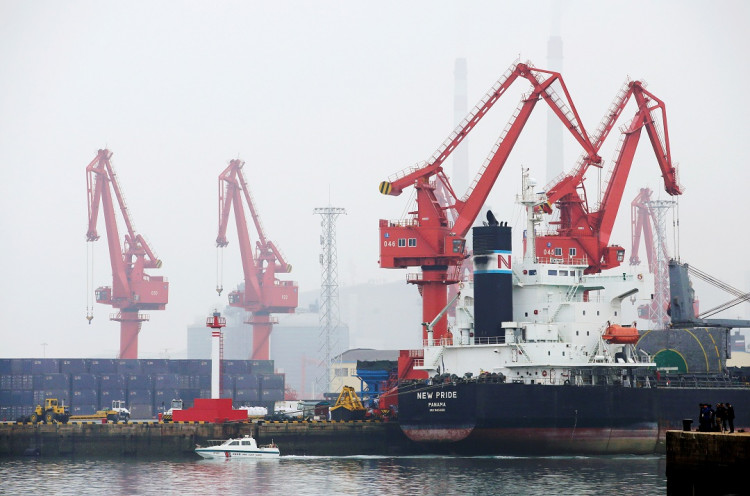China has rejected U.S. demands to cease oil imports from Russia and Iran, standing firm against threats of sweeping tariffs as trade negotiations between the world's two largest economies continue in Stockholm. The dispute highlights enduring geopolitical friction even as both sides express optimism about reaching a broader trade agreement.
"China will always ensure its energy supply in ways that serve our national interests," China's Foreign Ministry posted on X following two days of talks. "Coercion and pressuring will not achieve anything. China will firmly defend its sovereignty, security and development interests."
The comments come in response to the Biden administration's warning of a potential 100% tariff on Chinese goods should Beijing continue to support the Kremlin and Tehran through oil purchases. U.S. Treasury Secretary Scott Bessent acknowledged the challenge, saying, The "Chinese take their sovereignty very seriously."
"We don't want to impede on their sovereignty, so they would like to pay a 100% tariff," Bessent told reporters, adding later on CNBC, "I believe that we have the makings of a deal."
Despite the upbeat tone, China's oil trade with Moscow and Tehran remains a serious sticking point. A U.S. Energy Information Administration report estimates that 80% to 90% of Iran's oil exports go to China. The country currently imports more than 1 million barrels of Iranian oil per day, often through maritime "dark fleet" transfers designed to bypass U.S. sanctions.
In April, China's imports of Russian oil surged 20% month-over-month to 1.3 million barrels per day, according to the Kyiv School of Economics. Analysts believe China is securing these supplies at below-market rates, helping preserve what Danny Russel of the Asia Society Policy Institute calls "strategic solidarity" with Russian President Vladimir Putin.
"Beijing simply can't afford to walk away from the oil from Russia and Iran," Russel said. "It's too important a strategic energy supply, and Beijing is buying it at fire-sale prices."
The Trump administration, however, is escalating efforts to curb the flow of funds to Moscow and Tehran. Sen. Lindsey Graham has introduced legislation that would impose tariffs up to 500% on any nation "knowingly" purchasing oil, natural gas, or other petroleum products from Russia.
"The purpose of this legislation is to break the cycle of China - a communist dictatorship - buying oil below market price from Putin's Russia, which empowers his war machine to kill innocent Ukrainian civilians," Graham said in June.
The bill, which has 84 co-sponsors in the Senate and bipartisan support in the House, is currently on hold. Republicans say they are waiting for Trump's signal to advance the sanctions.
India has also come under fire. After President Trump warned of a 25% tariff on Indian goods, citing its Russian oil imports, New Delhi defended its position. "Our relationship with Russia is steady and time-tested," India's Foreign Ministry said.
Stephen Miller, White House deputy chief of staff, stated on Fox News, "People will be shocked to learn that India is basically tied with China in purchasing Russian oil. We need to get real about dealing with the financing of this war."





